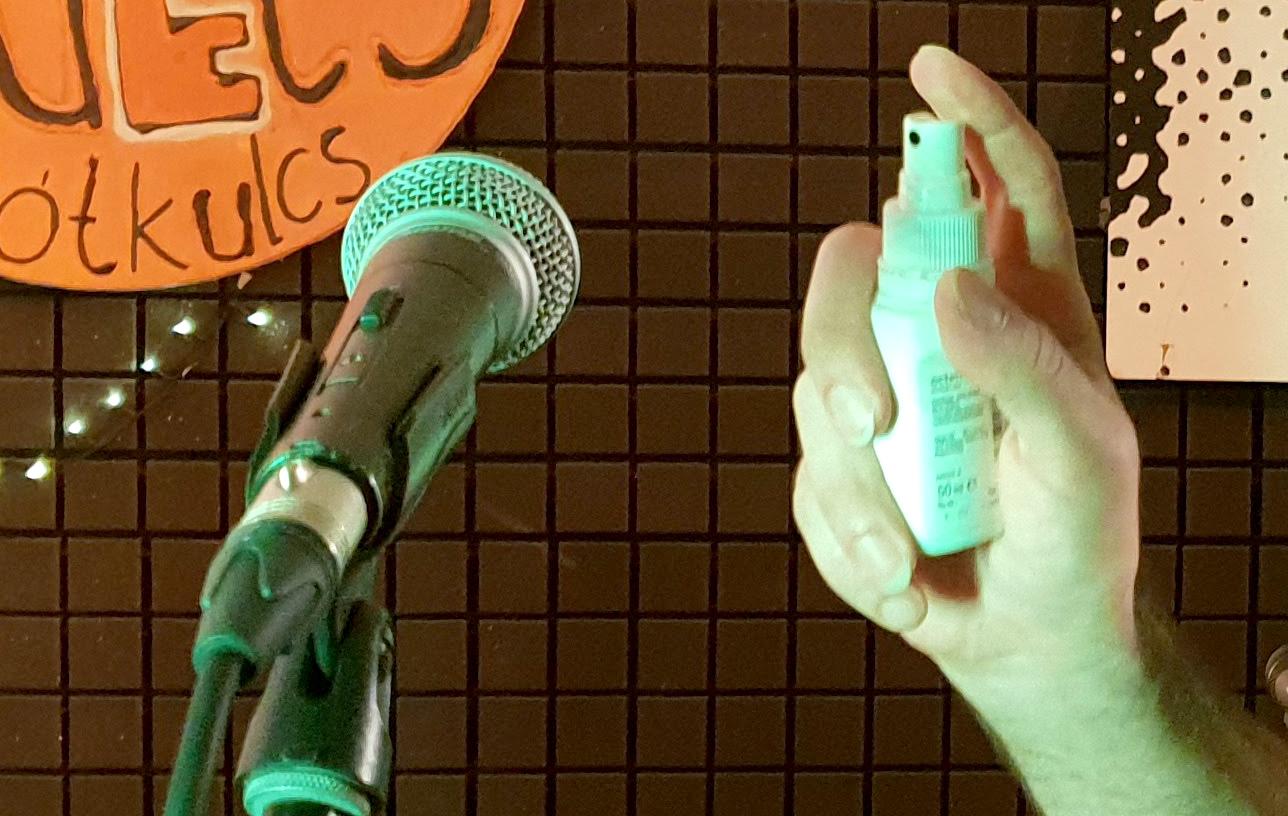“Should I play or should I close?” — is the question everybody in the club music scene is asking themselves these days, or if they’re not, they should be. But is it really a black-or-white kind of question? Any shades in between?
The second wave of the pandemic is seriously testing the limits of our capacity, and patience too, on all levels. In most regions, the number of cases is already higher than at their peak in Spring 2020, and it’s far from over.
It is also true, however, that medical science has made some progress in the meantime, as there are more treatments available now in Hungary and the death rate is decreasing, proportionally speaking. At the same time, if you’re at risk or in frequent contact with someone at risk, you still don’t want to take chances, so it’s best to stay away from sharing space with the rest of society, at least for nonessential activities.
And what could be more nonessential than live music?
Well, some people might argue about the effects of live music withdrawals on your mental health and all that, or perhaps the livelihood of musicians, staff, producers, and the economic decline thereof, but at the end of the day, it’s easier to survive the lack of music events than complications from the COVID-19. That is if you’re at risk.
If you don’t think you are at risk you still have to act responsibly because this sneaky-ass virus can spread before any symptoms appear.
What else can we do?
We’ve already given up on large concerts and festivals. As of October 23, 2020 though, you can still keep a club open until 11 pm in Hungary, although some experts argue that this should also be more limited, in fact, many large cities in Europe are imposing curfews. So far the Hungarian government’s rationale has been that as long as you act responsibly, wear a mask and social distance, they don’t want to sacrifice such a large segment of economic activities. All of this is done in hope of being able to keep the spread of the virus under reasonable control and within the capacity of the health care system.

So if you wanna go out tonight, here are some suggestions for you to reduce the risk of contracting and/or spreading the virus:
- Stay clean. In every way. Besides personal hygiene, which we already know, it is now an even better idea to also stay away from drugs and excessive drinking for improved judgment and a stronger immune system. Also, take your vitamins, maybe some extra vitamin D, especially with sunshine hours decreasing, and use lots of mouthwash, besides washing your hands all the time, of course.
- Playing is sharing? If you play music, disinfect instruments religiously! Musicians have a tendency for oral fixation, like putting guitar picks into their mouths and touching the microphone with their lips. Now, can you imagine what ideal breeding ground the mic is for the virus? (Especially when it’s an open mic or a jam, and people switch off after a few songs.) Event hosts or managers should obviously do something about this too, and normally they do, either by spraying or wiping disinfectant on the mic and shared instruments, or using a new sponge cover for mics with every performer.
- Be less touchy-feely. Try to appreciate meeting up with a dear friend in different ways than hugging, kissing, and touching. This will surely reduce sexual harassment as well, so it might be a blessing in disguise, right? 😉
- Trace your own contacts. Keep an eye on who in your circles might have gotten the virus, and if you’ve been in contact with them, get tested immediately, and also urge everybody you’ve been in contact with to get tested.
- If in doubt, don’t go out! Do we really have to explain that if you have the slightest of symptoms or if you have a realistic chance of carrying the virus you should stay home? The same stands for situations where you might share a household or workspace with someone at risk.
If you have any more ideas of what should be included, feel free to drop a comment or send us an email.
Is there a happy medium? Perhaps.
During the first wave everyone was certainly more understanding and willing to accept a total lockdown, as we didn’t know enough about the virus at the time. At this point, however, it’s more and more visible that there will not be a one-size-fits-all solution, so let’s just hope we can find more streamlined ways of dealing with it in light of some recent experience.
Joblessness and depression can also lead to health issues and deaths, and compared to the spring season, people’s reserves are now rapidly dwindling, much like the government’s relief budget. Smaller venues, club musicians, and their staff are also less likely to be bailed out, as opposed to large production companies and better-known performers.
In the end, it does take two to tango. You take responsibility when you stay open for events, but the guests should also take individual responsibility for themselves, their loved ones, their colleagues, and their community.
One more thing: realistically speaking, the virus is here to stay. Get used to it. Even a vaccine won’t do away with it completely because not everyone will take it and it will not last a lifetime either. Advances in treatment and reasonable protective measures are probably our best bet for the near future.
Now, if you’ve considered all of this and still feel like going out, feel free while you can.
Stay Safe!

Thank you for writing this and for caring so much about the community. An important thing to emphasize is that there is a close-to 40 percent asymptomatic transmission rate based on our current scientific knowledge, and people are most contagious in the days they don’t yet show symptoms. So even though it seems like we have learned a lot, these two major elements seem to have been forgotten worldwide. This hugely contributed to the situation getting this intense for the autumn, as people don’t understand that they could easily endanger others while feeling completely fine. I don’t know how to incorporate this into the Open Mic Events approach, or in the article, I’m happy to provide sources if you guys would like them. I feel this is super important, because if we had been paying attention to these two factors globally through the whole process, now we’d all have a much easier time.